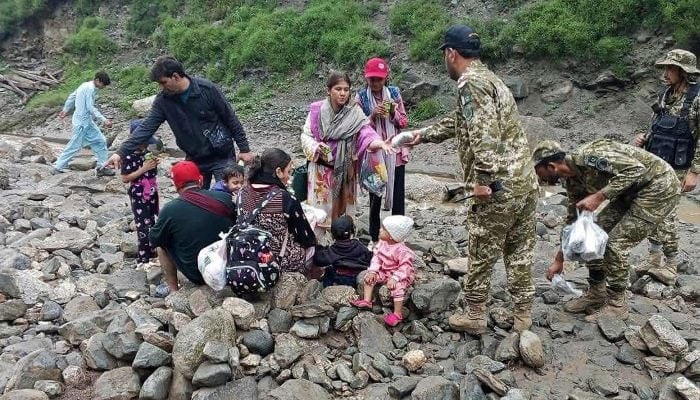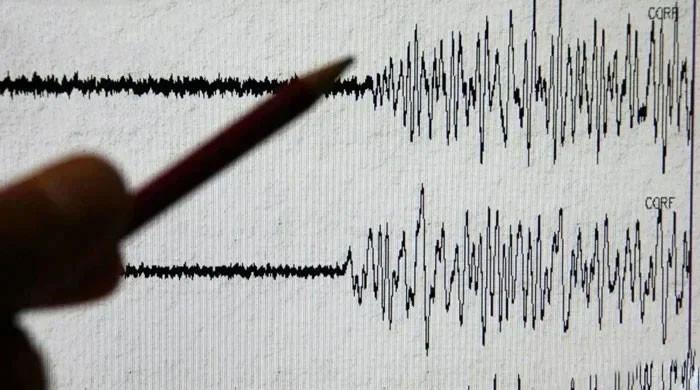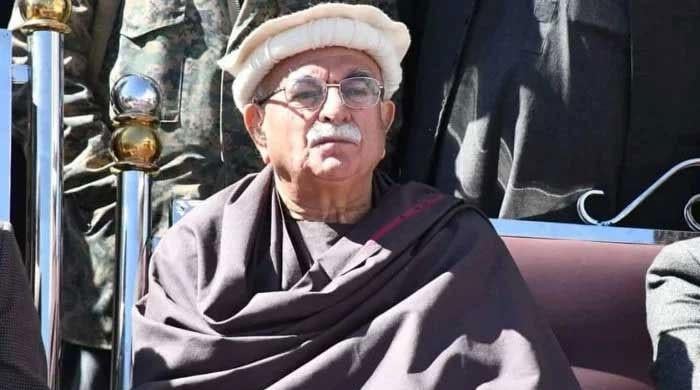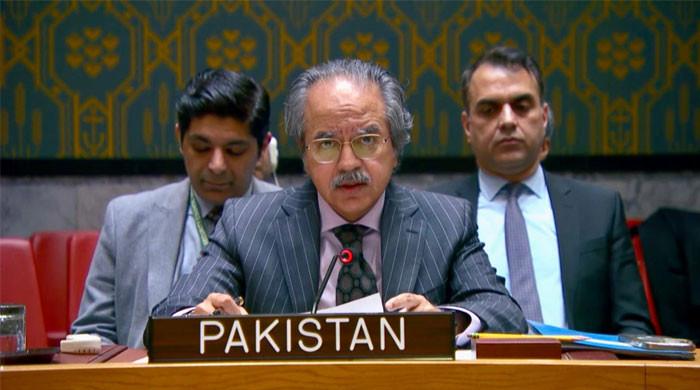Nine dead, dozens missing as climate disasters batter Gilgit Baltistan
Chief secretary says floods damaged 200 homes, disrupted roads, water channels, and cut off several villages
July 25, 2025

- Chief secretary says most incidents caused by GLOFs.
- Warns death toll may rise as several vehicles still missing.
- Over 200 homes destroyed, villages cut off by rains.
Gilgit Baltistan Chief Secretary Abrar Ahmed Mirza said the region has been severely affected by a series of climate-driven disasters over the past two weeks, with at least nine people confirmed dead, more than 200 homes damaged, and major infrastructure left in ruins.
The region, nestled in the north of Pakistan, has seen extreme weather conditions, with glacial melts, heatwaves, and heavy rainfall triggering flash floods and landslides, The News reported.
Addressing a press briefing on Thursday, the top official said the region initially faced glacial melt and heatwaves, followed by a new spell of heavy rains that triggered flash floods and landslides, particularly in Diamer and Astore districts.
“From June 10 till now, we have confirmed nine fatalities, eight of which occurred in the valleys of Thak and Thor in Diamer, while one death was reported from Astore valley,” he said.
The chief secretary noted that most incidents were caused by glacial lake outburst floods (GLOFs), a phenomenon increasingly common due to rising temperatures and climate change. “We are witnessing the compounded impact of extreme heat and erratic rainfall,” he added.
He said the floods had damaged around 200 homes, disrupted roads and water channels, and cut off several villages in Kharmang district, where bridges collapsed. “All 10 districts of Gilgit Baltistan have been affected to varying degrees, but Diamer remains the hardest hit,” he stated.
According to Mirza, the government launched immediate rescue operations in collaboration with the Pakistan Army, GB Scouts, district administration, and Rescue 1122, with the help of local volunteers. Stranded tourists were also airlifted through army helicopter sorties in inaccessible areas. He acknowledged that travel advisories are regularly issued for high-risk areas, but said that public response remains inadequate. “People tend not to alter their travel plans until the threat becomes imminent,” he observed.
He further warned that the death toll may rise, as several vehicles are still missing, and four to five more bodies are feared to be found during the ongoing recovery efforts. The GB government continues to assess the full scale of damage and has pledged to restore blocked routes and provide relief to displaced families.
Meanwhile, at least six people were killed and five others injured due to heavy rainfall across the country in the past 24 hours, pushing the country’s death toll from the monsoon spell to 258, according to the National Disaster Management Authority (NDMA).
The agency reported on Thursday that three of the fatalities occurred in Khyber Pakhtunkhwa, where five individuals were also injured. Additionally, two people died in Islamabad and one person in Sindh as a result of rain-related incidents.
Among the deceased are 89 men, 46 women, and 123 children. The injured include 243 men, 170 women, and 203 children, highlighting the widespread human toll caused by the ongoing weather emergency.
The rains have also caused extensive property and livestock damage. Over the last 24 hours alone, 22 houses were reported destroyed, and 36 livestock animals perished. Since the beginning of the monsoon season, a total of 1,027 houses have been demolished by the rains, while 364 animals have died.











